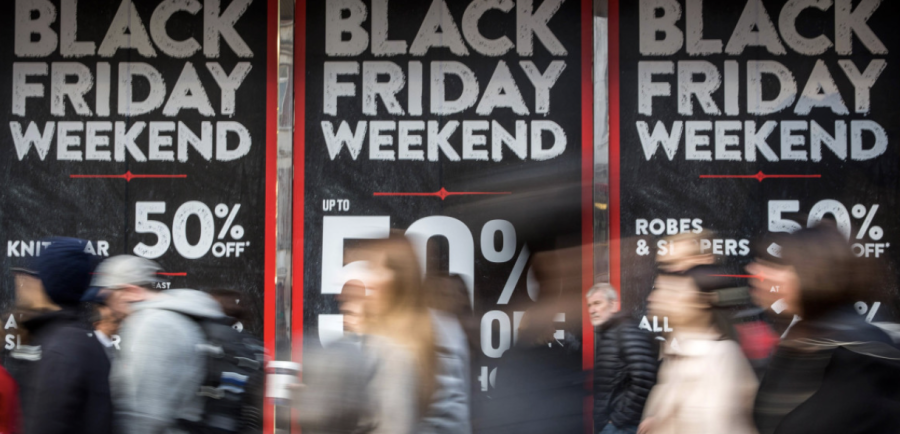Black Friday: Hoax or Just Hot Deals?
November 26, 2022
Having overindulged myself the night before, on too many servings of mashed potatoes and turkey drowned in gravy, I awoke groggy on November 25th, and I did what any self-respecting member of Gen. Z would do: check my phone immediately. Upon unlocking my phone, 238 emails with the identical subject line, “DON’T MISS TODAY’S SALES,” appeared. In 3 minutes, 26 new messages appeared as I scrolled through the previous ones. And as the emails continued to pour in, I grew more mentally prepared for Black Friday – a day that some people observe with great enthusiasm and others choose to ignore entirely. Sure, I count myself among the day’s fans, but why today? And how is this not a scam?
Many people attribute the moniker “Black Friday” to the financial term “in the black,” which describes a company’s lucrative time. Typically, businesses stay, “in the red,” or lose money during the summer and autumn months owing to customers’ lack of purchasing. It isn’t until the day after Thanksgiving that retailers are predicted to turn a profit and enter “in the black,” hence Black Friday. The name may have also originated from a phrase used by Philadelphians in the 1960s to describe the day between Thanksgiving and the Army-Navy football game, when vast numbers of tourists and shoppers would appear in the city, putting a strain on local police enforcement.
No matter the origin of the name, many believe the day to be a scam; it appears Black Friday’s sole purpose is to reward shoppers with discounts and freebies, and how can that be good for business? Nonetheless, economists are increasingly using the success of Black Friday sales as a gauge of consumer confidence and a sign of the country’s economic state. It’s also a win-win for consumers and the stores themselves. Retailers take advantage of the day to run flash sales, provide extreme discounts on seasonal goods and offer bargain prices on overstock.
The Le Cecilia XS Patchwork Studs Bag by Zadig & Voltaire will typically set you back a hefty $648.00. On Black Friday, though, the price was slashed in half, making it tempting to fork out the cash. Consumers who are on the search for bargains may be persuaded to purchase high-priced items, such as the most popular brand names, if the companies provide deeply discounted items in an effort to get customers into the stores, where they are more likely to purchase products with a greater profit margin. On Black Friday, businesses can also draw in first-time buyers and provide them with a memorable shopping experience that will encourage them to return in the future.
While this may be good for business, many consumers still see the “bargains” offered on Black Friday as nothing more than a scam: many shops mark up items in the weeks before the day to drop them back to pre-Black Friday prices. In the weeks leading up to Black Friday, many shoppers have noticed that prices at several retailers have been steadily increasing, believing the sales to be catered to bargain-hunters who won’t purchase anything at full price.
As a shopper who loves to buy the latest and greatest, I appreciate the opportunity to splurge. Even if the deals are fraudulent, assuaging one’s inner guilt by perusing the discounts is a comforting thought: the $181.34 I managed to save despite spending all my savings makes the day’s scams worth it.













